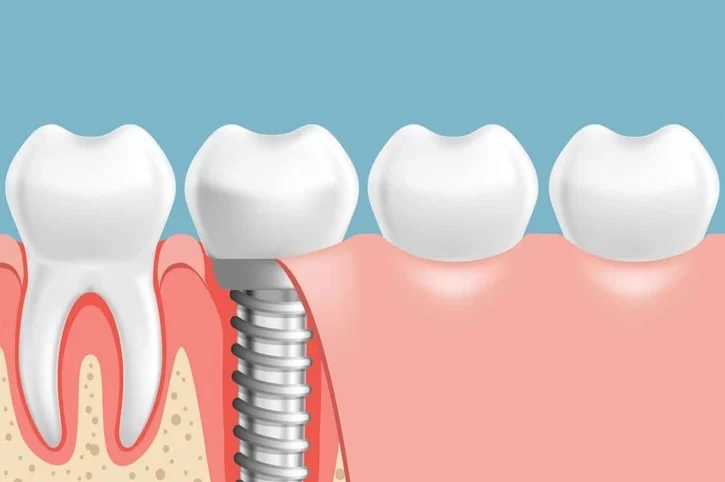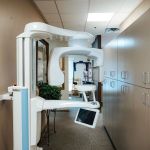
Dental Implants vs Partial Dentures: A Detailed Comparison of Two Popular Dental Solutions
- 1. Understanding Dental Implants
- 2. Understanding Partial Dentures
- 3. Key Differences Between Dental Implants and Partial Dentures
- 4. Advantages of Dental Implants
- 5. Advantages of Partial Dentures
- 6. Choosing the Right Solution for You
1. Understanding Dental Implants
Dental implants are a modern, permanent solution for replacing missing teeth. The process involves placing a titanium post into the jawbone, which serves as an artificial tooth root. A custom-made crown is then placed on top, offering both function and appearance similar to natural teeth.
Unlike partial dentures, dental implants are a more stable and long-lasting option. They integrate with the bone over time, providing a solid foundation for the replacement tooth, and can last for decades with proper care.
2. Understanding Partial Dentures
Partial dentures are removable dental appliances that replace one or more missing teeth. They are typically made of a combination of metal and acrylic and are designed to fit snugly over the gums, anchored to remaining natural teeth with clasps or precision attachments.
Partial dentures offer a less invasive and more affordable alternative to dental implants, but they may not feel as secure or natural. While they can restore the appearance of a full smile, they may require more maintenance and can be less comfortable over time.
3. Key Differences Between Dental Implants and Partial Dentures
When considering dental implants vs partial dentures, several key differences can help guide your decision:
- Longevity: Dental implants are designed to last a lifetime with proper care, whereas partial dentures may need to be replaced every 5 to 10 years due to wear and tear.
- Comfort: Dental implants are surgically placed into the bone, providing a stable and permanent solution. Partial dentures, on the other hand, can feel bulky and may cause discomfort or irritation.
- Maintenance: While implants require regular dental check-ups, partial dentures need to be removed and cleaned daily, and they can affect speech or eating if not properly fitted.
- Cost: Dental implants are generally more expensive than partial dentures due to the surgical procedure involved. However, they may save money in the long run due to their longevity and minimal maintenance.
4. Advantages of Dental Implants
Dental implants offer numerous benefits, including:
- Permanent Solution: Once placed, dental implants are a long-term solution, offering stability and security that partial dentures cannot provide.
- Improved Functionality: Dental implants allow for more natural chewing and speaking compared to partial dentures.
- Preservation of Jawbone Health: Implants help prevent bone loss, which is a common issue when teeth are missing.
- Enhanced Aesthetic Appeal: Since dental implants are custom-made to match the natural teeth, they often look and feel more natural than partial dentures.
5. Advantages of Partial Dentures
Partial dentures have their own set of advantages, such as:
- Affordability: Partial dentures are a more affordable solution compared to dental implants, making them a popular choice for those on a budget.
- Non-invasive: Partial dentures do not require surgery, and they are removable, which makes them less intimidating for some patients.
- Faster Solution: The process for getting partial dentures is much quicker compared to the multi-step process of dental implants.
6. Choosing the Right Solution for You
When deciding between dental implants and partial dentures, it is essential to consider factors such as cost, comfort, and long-term dental health. If you're looking for a permanent and low-maintenance solution, dental implants may be the best option. However, if affordability and a non-invasive process are your primary concerns, partial dentures might be more suitable.
Each person's situation is unique, so it's crucial to consult with a dental professional to determine the most appropriate treatment plan. At Dentistry Toothtruth, we provide expert advice and offer a variety of dental solutions tailored to your specific needs. Visit our website to learn more about our products and services.







 Great Smiles Dental Care4.0 (472 review)
Great Smiles Dental Care4.0 (472 review) Genesis Dental of Taylorsville4.0 (842 review)
Genesis Dental of Taylorsville4.0 (842 review) Downtown Dental Center4.0 (114 review)
Downtown Dental Center4.0 (114 review) Advanced Dental Implant Center "Comfort Dental"4.0 (201 review)
Advanced Dental Implant Center "Comfort Dental"4.0 (201 review) Hall Orthodontics5.0 (150 review)
Hall Orthodontics5.0 (150 review) Bright Now! Dental & Orthodontics3.0 (453 review)
Bright Now! Dental & Orthodontics3.0 (453 review) The Importance of Oral Health Education During Pregnancy for a Healthy Pregnancy
The Importance of Oral Health Education During Pregnancy for a Healthy Pregnancy Best Tips for Brushing Your Teeth Properly for Healthy Gums: Essential Techniques for Oral Health
Best Tips for Brushing Your Teeth Properly for Healthy Gums: Essential Techniques for Oral Health Why Skipping Dental Checkups Can Lead to Bigger Oral Health Problems
Why Skipping Dental Checkups Can Lead to Bigger Oral Health Problems Advantages of Porcelain Dental Restorations
Advantages of Porcelain Dental Restorations How Can Diabetes Cause Tooth and Gum Problems? Preventing and Managing Oral Health Issues
How Can Diabetes Cause Tooth and Gum Problems? Preventing and Managing Oral Health Issues Healthy Habits for Promoting Good Oral Health and Hygiene: Tips for a Healthy Smile
Healthy Habits for Promoting Good Oral Health and Hygiene: Tips for a Healthy Smile